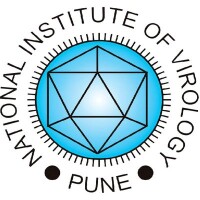About National institute of virology - india
National Institute of Virology - India: Leading the Way in Virus Study
The National Institute of Virology (NIV) is a premier research institute located in Pune, India. Established in 1952, NIV has been at the forefront of virus research and has made significant contributions to the field of virology. The institute is affiliated with the Indian Council of Medical Research (ICMR) and is recognized as a World Health Organization (WHO) Collaborating Centre for Arbovirus and Haemorrhagic Fever Reference and Research.
Virus Study at NIV:
At NIV, virus study is conducted with utmost precision and accuracy. The institute's state-of-the-art facilities enable researchers to conduct cutting-edge research on various viruses that affect humans, animals, and plants. The institute's primary focus areas include emerging viral infections, arboviruses, respiratory viruses, enteric viruses, hepatitis viruses, HIV/AIDS virus, influenza viruses among others.
VRC:
The Virus Research Center (VRC), established in 1978 under ICMR-NIV Pune was created to provide an integrated approach for conducting basic research on viral diseases. It also provides diagnostic services for viral diseases through its clinical virology laboratory.
Master of Science in Virology:
NIV offers a Master's degree program in Virology that aims to train students who are interested in pursuing careers as virologists or researchers. This program provides students with comprehensive knowledge about various aspects of virology such as molecular biology techniques used for studying viruses; pathogenesis mechanisms involved during infection; host-virus interactions; epidemiology; diagnosis & treatment strategies etc.
Annual Reports:
NIV publishes annual reports that provide detailed information about its activities throughout the year including scientific publications by its scientists/researchers which are published nationally/internationally.
Entomology & Zoology:
Apart from virus study NIV also conducts research on Entomology and Zoology. The institute has a well-equipped insectarium that houses various species of insects, including mosquitoes, ticks, and sandflies. The entomology department studies the role of these insects in transmitting diseases such as dengue fever, chikungunya, malaria etc.
Bioinformatics:
NIV also has a bioinformatics division that uses computational tools to analyze large datasets generated from virus research. This division plays a crucial role in identifying new targets for drug development and designing vaccines against viral infections.
Microarray:
NIV's Microarray facility is equipped with state-of-the-art equipment for gene expression analysis using microarrays. This facility enables researchers to study the expression patterns of thousands of genes simultaneously.
Rota Virus & Chandipura Virus:
NIV has made significant contributions to the study of Rota virus and Chandipura virus. These viruses cause severe illnesses in humans and animals respectively. NIV's research on these viruses has led to the development of diagnostic tests and vaccines against them.
Animal House:
The Animal House at NIV is a state-of-the-art facility that houses various animal models used for studying viral infections. The institute follows strict ethical guidelines while conducting experiments on animals.
Conclusion:
In conclusion, National Institute of Virology - India is one of the leading institutes in virus study globally with its cutting-edge facilities and highly skilled researchers who are dedicated to advancing our understanding about viruses that affect humans, animals & plants alike. Its contribution towards developing diagnostic tests & vaccines against viral infections have been invaluable over the years making it an important institution not just within India but globally as well!
